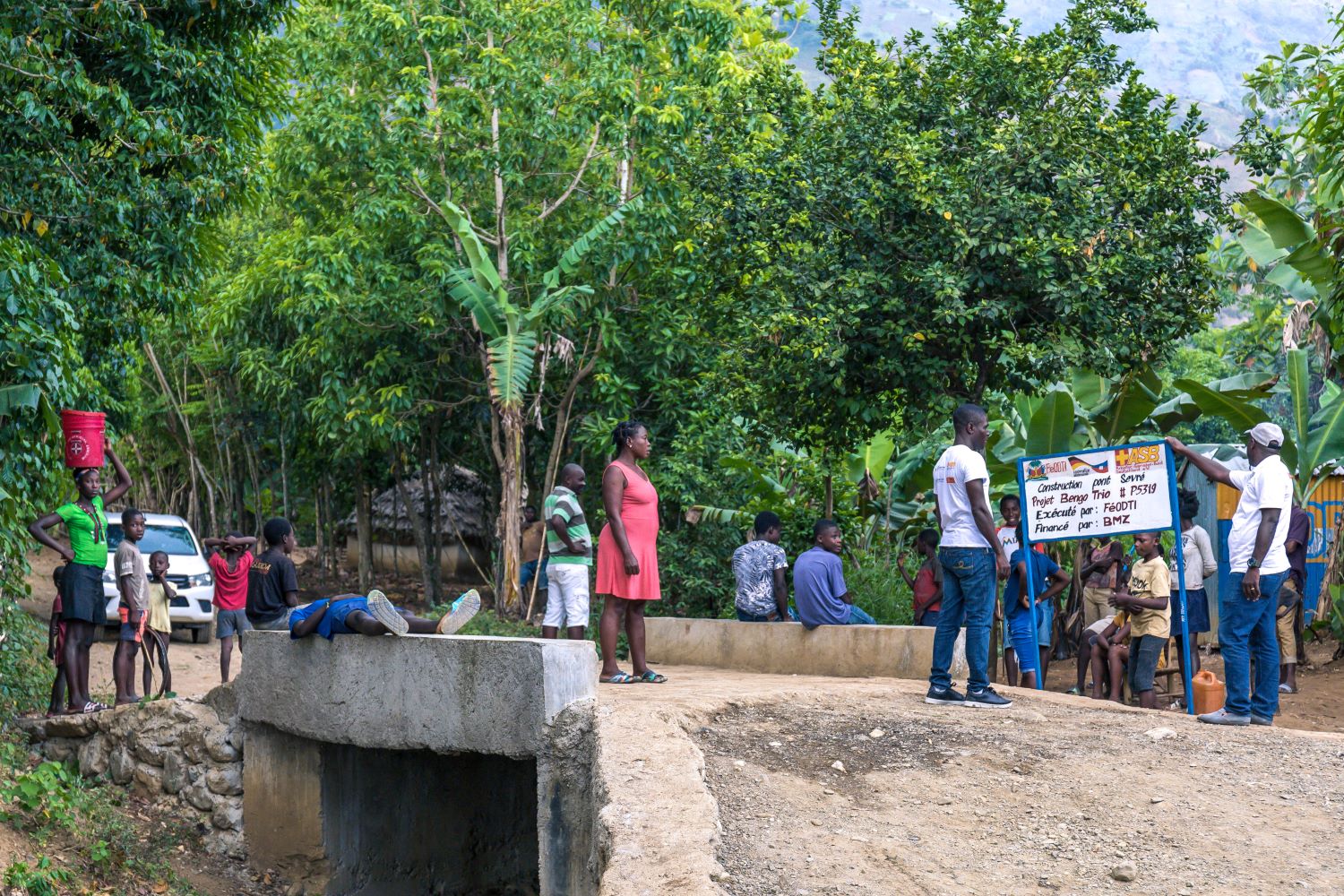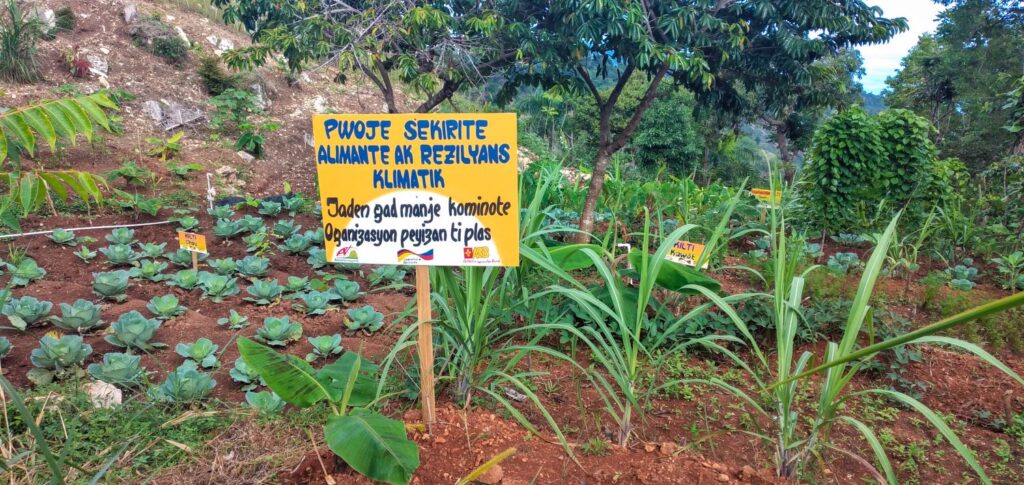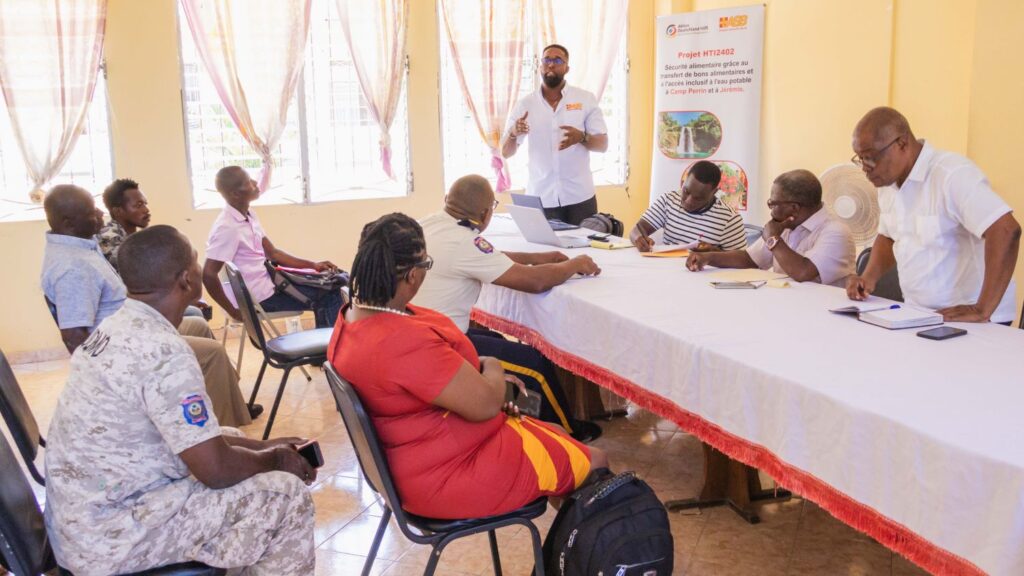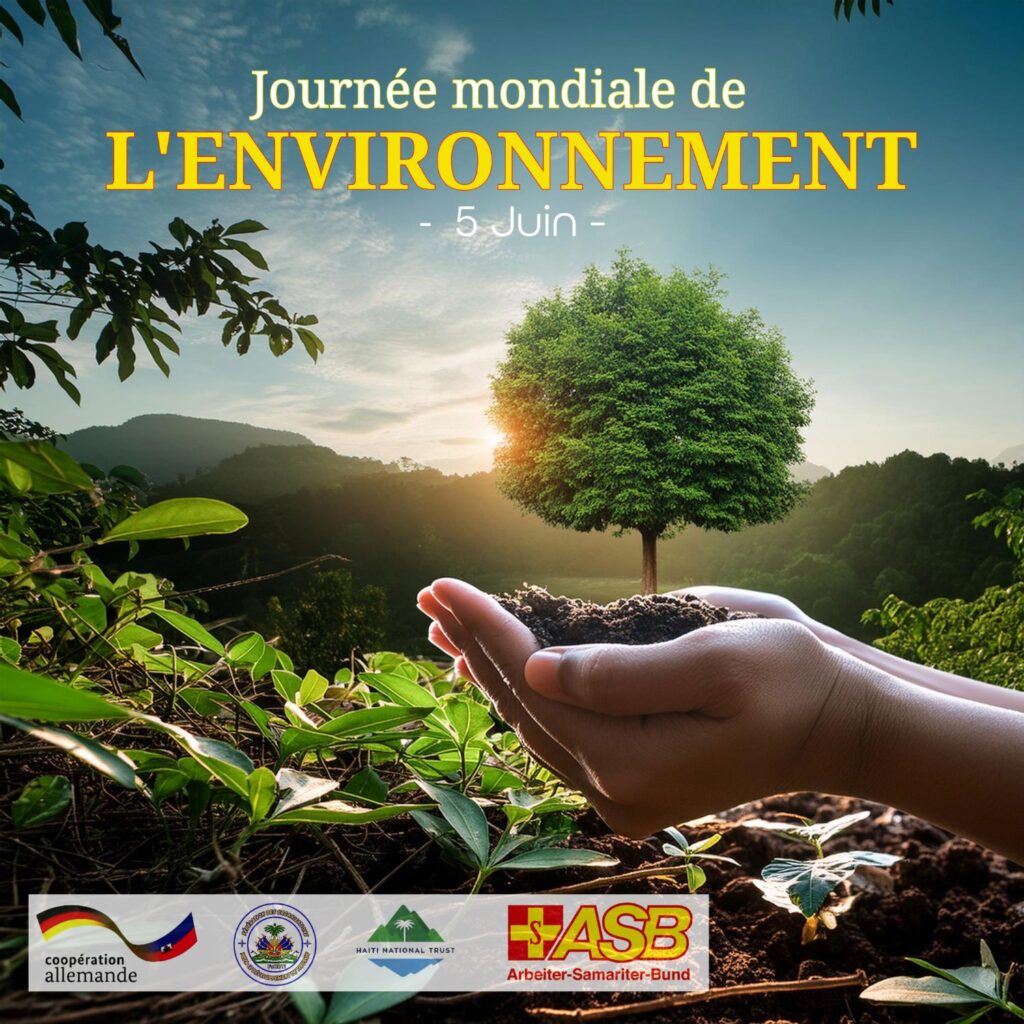We are committed to change
After a 32-month period marked by both challenges and successes, the project “Strengthening the resilience of vulnerable population groups and organizations in the face of very high disaster risk in Haiti’s south and west departments” has come to a successful conclusion, leaving many beneficiary communities with high hopes for the future. Spearheaded by the German organization Arbeiter-Samariter-Bund (ASB), this project aimed to support vulnerable populations in regions where communities face complex challenges exacerbated by recurring natural disasters and the devastating effects of climate change.
Financially supported by the German Federal Ministry for Economic Cooperation and Development (BMZ) with a budget of 1,222,222 euros, the project ran from October 2020 to May 2023.
The project was implemented by local partners, specifically the Unité Nord 3eme Section (UN-3) in Petit-Goâve for the West Department, the Coopérative Agricole des Planteurs de Saint-Louis du Sud (CAPSL) and the Fédération des Organisations pour le Développement de Tiburon (FeODTi) in the South Department. They have catalyzed change and responded to the aspirations of local communities, where agriculture, fishing and livestock farming are the very fabric of life.
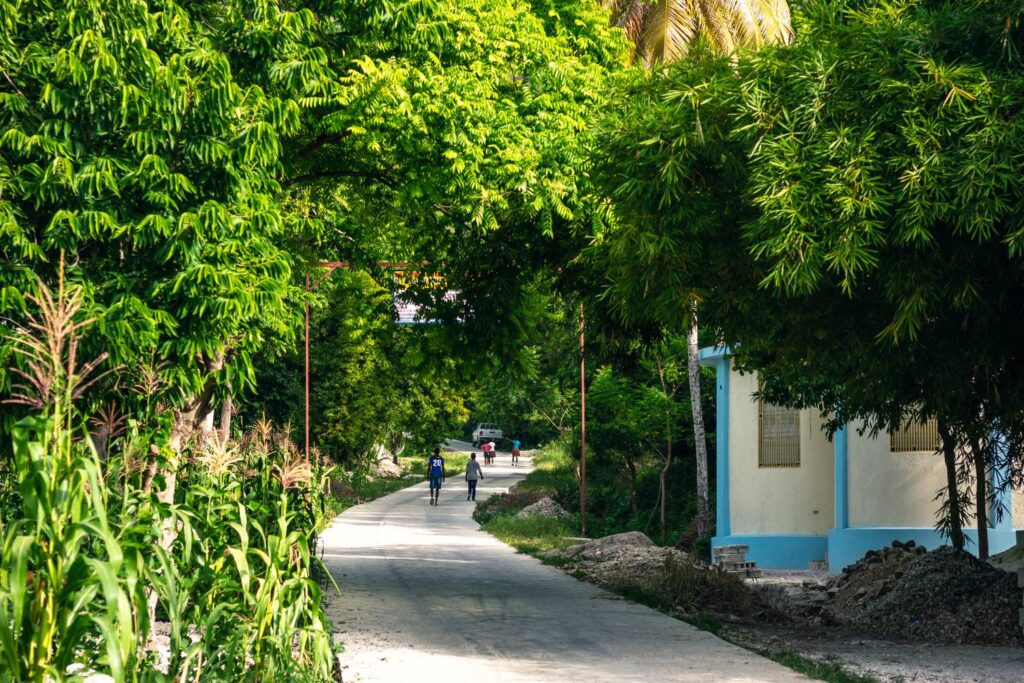
Concrete and Holistic Initiatives for Sustainable and Resilient Results
The project aimed to address the persistent challenges faced by agricultural and rural communities in Haiti, such as limited access to a diversified diet, rural underdevelopment, inadequate infrastructure, and high vulnerability to natural disasters and the effects of climate change. The feasibility study confirmed that the planned activities corresponded to national food security priorities, thus justifying the project’s relevance.
Raising awareness of COVID-19
One of the project’s first initiatives was to raise awareness of COVID-19. In the midst of the pandemic, it was crucial to provide vital information on preventive measures against the disease. Awareness campaigns reached over 130,000 people, and 94 hand-washing facilities were installed. These hand-washing points provided drinking water to the targeted population, reducing the risk of the virus spreading and improving sanitary conditions in the communities.
Improving access to water
Access to drinking water was another key aspect of the project. In collaboration with local partners, 39 water systems were built or rehabilitated, ensuring a clean and reliable water supply.
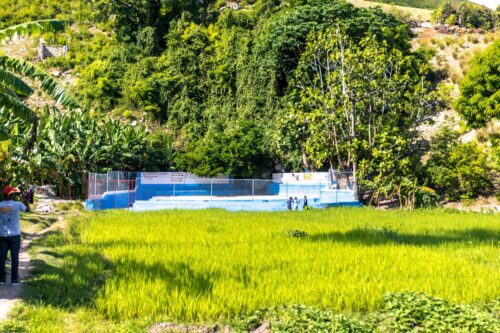
In addition, 89 members of 14 water system management committees were trained to manage these systems, ensuring sustainable and efficient management of water resources. The benefits of this achievement were particularly felt by women and girls, who were traditionally responsible for long journeys to collect water.
In addition, awareness campaigns reaching over 100,000 people on health, hygiene and the prevention of COVID-19 were carried out.
Agricultural Training and Value Chain Development
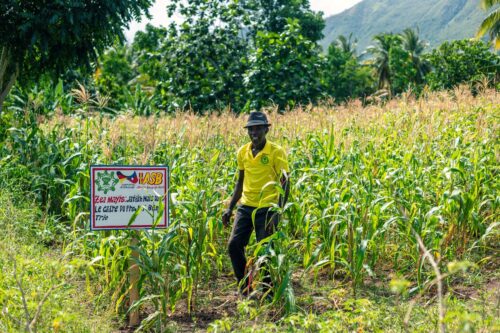
Building farmers’ capacities and developing value chains was another major pillar of the project. During the project’s implementation, nearly
2000 members from nine (9) cooperatives and social enterprises received training in business planning, financial management, quality control and marketing. These courses have helped to strengthen members’ entrepreneurial skills and diversify value chains, particularly in the areas of corn, honey, cassava and cocoa.
As a result of these initiatives, around 70% of the 1,250 beneficiary smallholder farming families increased their agricultural production by an average of 20% to 40% over the duration of the project. This significant increase in production has not only improved families’ food security, but has also helped to boost the local economy.
Success Stories
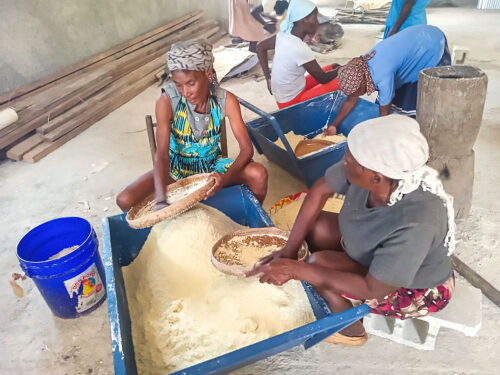
The project has transformed the lives of many local individuals and organizations. Forest Lafleur, coordinator of ROTROU (Regroupement des Organisations de Trou
chouchou), with 11 member organizations in Petit-Goâve, testifies to the impact of the construction of a cassaverie as part of the project. According to him, this initiative has revolutionized the cassava production process, transforming a traditional activity into a modern enterprise. ROTROU members now use the cassaverie seasonally, with sales at community events such as the Trouchouchou patronal festival and public markets. They plan to develop production further, in terms of both quantity and quality, so as to distribute it throughout the country and even export it.
The impact of the training and support provided by the project is also reflected in other initiatives. For example, the Coopérative de Production Agroécologique et Artisanale de l’Avenir (COPRA), a cooperative of over 200 members involved in product diversification and agricultural processing, has benefited from training and the acquisition of hives and other beekeeping equipment under the project. Its members have since seen a remarkable expansion in the beekeeping sector. Andréma, one of COPRA’s beekeeping technicians, testifies to the difficulties overcome, such as hive aeration and protection methods. “Strengthening the bee farm was crucial… We can now see significant progress in beekeeping,” he adds.
Lasting and Significant Impact
The project has had a significant and lasting impact in Haiti’s southern and western departments. Thanks to planned initiatives and committed local partners, vulnerable communities in these regions have seen their resilience strengthened and their well-being improved.
The results achieved testify to the effectiveness of the interventions and the relevance of the strategies implemented. The project’s success is based on a holistic approach, integrating concrete actions to meet communities’ immediate needs while building their long-term capacities.
The successes and transformations observed in the beneficiary communities illustrate the power of international cooperation and local commitment to build a more promising future in a country like Haiti, which continues to require international support to recover from its chronic multidimensional crises.

